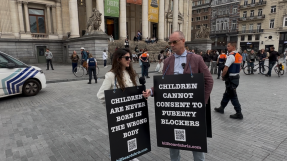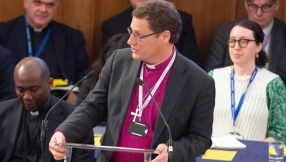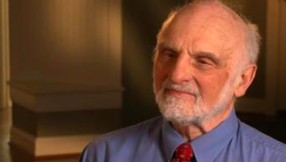Compassionate alternatives to abortion must start with the church
For some, there is little value to be discerned from something that, on the surface of things, seems to be little more than a dot of cells and tissue (I am addressing only those pregnancies that were conceived as a by-product of consensual sexual relations). That dot, however, contains the power and potential of life. Fast forward nine months and that dot of cells and tissue will be a living, breathing, smiling, crying, loving human being.
The skewed belief has taken hold of society at large that sex has a value and significance on par with a pleasurable trip to the cinema or a satisfying workout in the gym. Sex has become meaningless. It is no surprise then that its intended purpose - to pro-create - is being factored out of the equation by so many to the point that it is an undesired, inconvenient side effect.
The fact that the side effect happens to be a human life is inconvenient indeed for some. The fact that it would be altogether more convenient if this side effect were disposed of is even more inconvenient still. Abortion is physically and emotionally horrific for the women who endure it, yet still regarded by many as 'worth the hassle' if the birth of an unplanned child is deemed too great an interference in a woman's plans for her life.
This is the part when sceptics start rolling their eyes and switch into an auto-pilot exhortation on that old chestnut, a woman's right to choose what she does with her own body. Yet, in the moment that a woman discovers she is pregnant, her rights are automatically entwined with those of another human being - her unborn child. By this stage, it is as much a question of responsibility as of right.
Call me old-fashioned, but shouldn't the 'right to choose' in this particular instance be exercised in the years, days, hours or moments preceding sexual intercourse? Meaning, should not the 'right to choose' be more concerned with whether or not I as a woman am willing to enter into a sexual relationship, prepared to have a child in the event of accidentally becoming pregnant? As it is, too many women are content to live with a 'fingers crossed I don't get pregnant' mentality that lists abortion among the 'just in case' options.
At the same time, the almost on cue yawn from pro-abortionists is an interesting challenge to the church. It seems most people are already well aware of the opposition to abortion among Christians - and don't want to hear it. If that is the case, we as Christians have a challenge on our hands to communicate the same message in a way that will not leave people rolling their eyes.
There are still so many who do not know that their life begins in God before it ever begins in the womb. My life began when God created me in His heart and in His mind. That was also the very same moment that God started loving me. I am the dream and the plan of God, I am the fruit of His imagination, the result of His creation, praise God! It is this refreshing message of a life rooted in God that has to be proclaimed by the church more powerfully than ever.
There are those who believe in life after death; others believe in life before death. Those who know that all life comes from God believe in life before and after birth, and this is where the church has a real role to play. The unborn child is a life. The mother is also a life. The church needs to be there to support both, and reassure women contemplating abortion that if they decide instead to go through with the pregnancy - no matter how difficult a prospect that may seem - there will be non-judgemental, unconditional support for them in raising their child for as long as they may need it.
Pro-lifers are crying out for compassionate alternatives to abortion. If the church is serious about seeing the rate of abortion in the UK halved, then the provision of compassionate alternatives can and must start with the church.













